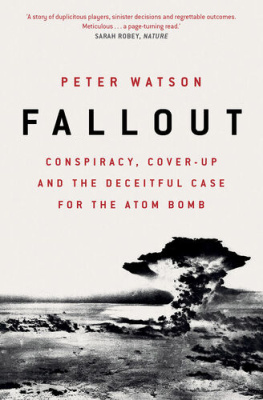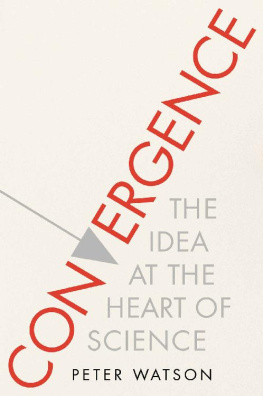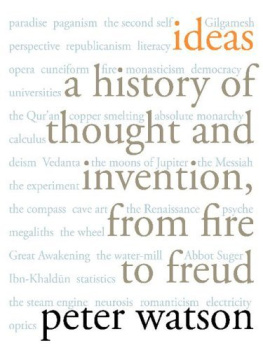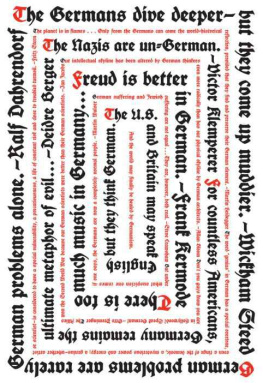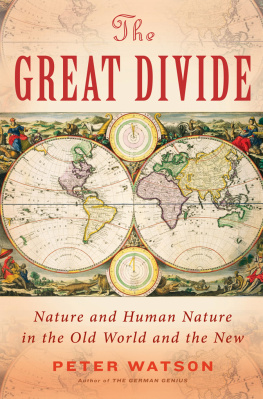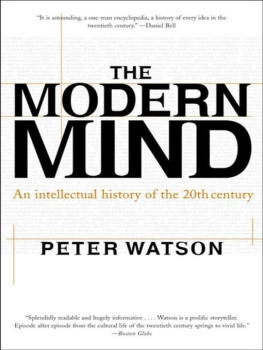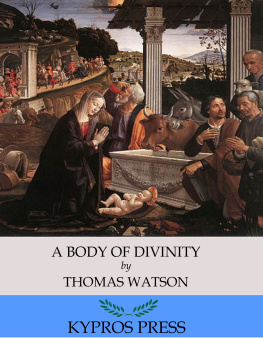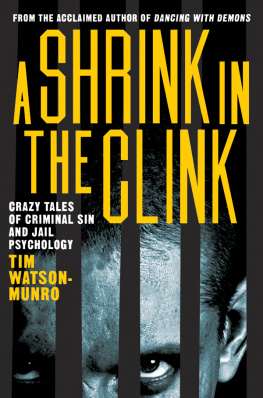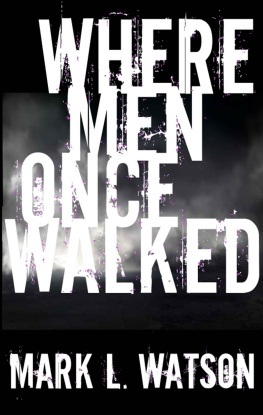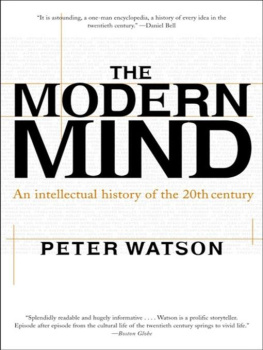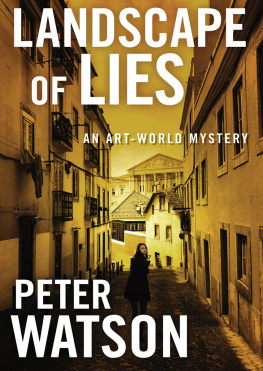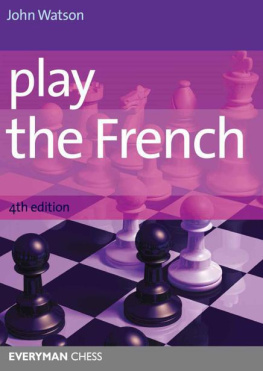Peter Watson - The French Mind
Here you can read online Peter Watson - The French Mind full text of the book (entire story) in english for free. Download pdf and epub, get meaning, cover and reviews about this ebook. year: 2022, publisher: Simon & Schuster UK, genre: Art. Description of the work, (preface) as well as reviews are available. Best literature library LitArk.com created for fans of good reading and offers a wide selection of genres:
Romance novel
Science fiction
Adventure
Detective
Science
History
Home and family
Prose
Art
Politics
Computer
Non-fiction
Religion
Business
Children
Humor
Choose a favorite category and find really read worthwhile books. Enjoy immersion in the world of imagination, feel the emotions of the characters or learn something new for yourself, make an fascinating discovery.
- Book:The French Mind
- Author:
- Publisher:Simon & Schuster UK
- Genre:
- Year:2022
- Rating:3 / 5
- Favourites:Add to favourites
- Your mark:
- 60
- 1
- 2
- 3
- 4
- 5
The French Mind: summary, description and annotation
We offer to read an annotation, description, summary or preface (depends on what the author of the book "The French Mind" wrote himself). If you haven't found the necessary information about the book — write in the comments, we will try to find it.
The French Mind — read online for free the complete book (whole text) full work
Below is the text of the book, divided by pages. System saving the place of the last page read, allows you to conveniently read the book "The French Mind" online for free, without having to search again every time where you left off. Put a bookmark, and you can go to the page where you finished reading at any time.
Font size:
Interval:
Bookmark:
In the Introduction I explained the immediate influences that sparked the idea for this book. But there was also a deeper context. From 1984 until 2018, I lived for part of each year in a lovely village in the pre-Alps in the south of France, a few kilometres outside Grasse. Quite by chance, the village was also the holiday home of Jean Lartguy, a soldier and well-known writer, who had escaped France in 1942 and, after spending time in a Spanish jail, joined the Free French forces and fought in Italy and the Vosges, winning two Croix de guerre and the Lgion dhonneur. After the war, Jean worked as a war correspondent for Paris-Match, covering hostilities in Korea (where he was wounded), Israel, Vietnam, Latin America (where he met Che Guevara) and Algeria. By the time I met him in Saint-Czaire-sur-Siagne, and we became friends, he was best known for his two novels about Algeria, The Centurions and The Praetorians.
But Jean, and his wife Thrse Lauriol, in this small mountain village, as beautiful as an opera set, had their own salon, as only the French know how. In their splendid house, with its magnificent oak dominating the patio, and overlooking the dramatic gorge of the Siagne and beyond, deep into the dpartement of Var, they imported some of the greatest writers, journalists, politicians, civil servants, theatre people, academics and television commentators that France had to offer. It was like the Mediterranean branch of the Left Bank. These gatherings were glittering, but they were private affairs, so I wont identify the people (though one or two are included in the alphabetical list below), but it was the discussions around the Lartguy table that really drew me into the French mindset, and I began to appreciate how it differed and still differed, then from its Anglo-Saxon equivalent. Jean died in 2011 when he was considering a critical look at Vichy France. Im not sure he ever started that book, but he certainly started something in me, The French Mind being the eventual result. My first thank-yous are to his memory and to Thrse.
Thrse is in fact herself an accomplished translator, as well as an author, and the translators of the many books referenced here are my second set of thank-yous. Translation is such an underappreciated art but how many authors could shine without it? Arthur Goldhammer is probably the doyen of translators, and the best-known, four times winner of the FrenchAmerican translation prize, but I include all the others mentioned in these references in this encomium.
That raises another way in which the French are exceptional. London, where I live, is home to one of the greatest libraries in the world, if not the greatest. The London Library is not the largest library in the world, nor the oldest, but it has been in existence since 1841, established on the initiative of Thomas Carlyle, when he couldnt find a seat in the British Library. Since then, it has been collecting books in English, French, Italian, German, Spanish and Russian, to the point where it now houses more than a million volumes. But what makes it special is that almost all of that million are on open access. You can browse the shelves to your hearts content. How many other libraries offer such an intellectual adventure?
With its collecting history, the catalogue of the library is of particular interest in these acknowledgements. Here are the number of titles the library holds on various countries:
- France39,027
- Germany23,891
- Italy19,329
- Russia12,961
- Spain8,106
- USA7,467
- China6,524
As this shows, France leads the way comfortably. Many of these titles are in the English language, and this shows another way in which the French are exceptional: on this count there would appear to be more books about France than about any other country. A subset of these titles, especially since the Second World War, are by Americans, and this explains why it may seem to some readers that a surprising number of the references which follow are in English. Some, of course, are translations of original French titles, but there is a strong representation of original, English-language research-based books by Americans, the fascination of France and the French way of life being as strong among them as among anyone, possibly for the reasons outlined in the Introduction. In particular, I would like to thank Faith Beasley at Dartmouth College, Carolyn Lougee Chappell at Stanford, Priscilla Parkhurst Ferguson at Columbia, Elizabeth Goldsmith at Boston, Dena Goodman at Michigan, Daniel Gordon at Massachusetts, Martha Hanna at Colorado, Erica Harth at Brandeis, Steven Kale at Washington State, Joan Landes at Penn State, Sarah Maza at Northwestern, Jolanta Pekacz at Dalhousie and Lisa Tiersten at Barnard College.
The Covid-19 pandemic put paid to a number of planned visits to France and its libraries, and interviews were conducted by phone and email rather than face to face. But that only means I am more than grateful for the understanding and cooperation of Iralia Albani, Jaquine Arnold, Anne dAsch, Pierre Assouline, John Bachofen, Diane de Beauvau, Gilles Berthoud, Roger Berthoud, Aurelie Bonal, Derek Bormann, Sophie Charbonnel, Dale Coudert, didi Danglejan, Catherine Deen, Laurence Droz-Georget, Roger Duchne (for his many excellent books), Jane Foster, Louise Frank, Juliana Galvis, Bernard de Ganay, Philippe Garner, Didier Garnier, Jean de Gruchy, Vincent Guy, Nomi Hepp, Ruth Iskin, Richard Kuisel, Howard Leach (US ambassador to France, 20015), Gerard Leroux, Ann Manuel, Anne Martin-Fugier, Franois Mitterrand (for showing me the antiquarian bookshops of the Left Bank), Guislaine Vincent Morland, Ben Murphy, Hlne Nozires, Monique Ogilvie, Isabelle and Douglas Ortmans, Luc Petre, Darian Pictet, Marei Pittner, Michael Pochna, Agns Poirier, Anna Pojer, Jean-Charles de Ravenal, Jean-Franois Revel, Jean Ribault, Martine and Edouard de Royre, Gonzague Saint Bris, Assallah Tahir, Antony Terry, Mark Tompkins, Christian Tual, Dominique Tutoni, Robert Vallois, Marco Vianello-Chiodo, Hugo Vickers, Isabel and Jimmy de Viel-Castel, Ann de Vigier and Jonathan Wadman.
Materials used from earlier books are indicated in the notes. Such errors, solecisms and omissions as remain are the authors responsibility alone.
London, 2021
HISTORY
The German Genius: Europes Third Renaissance, the Second Scientific Revolution and the Twentieth Century
Ideas: A History from Fire to Freud
The Modern Mind: An Intellectual History of the Twentieth Century
Wisdom and Strength: The Biography of a Renaissance Masterpiece
From Manet to Manhattan: The Rise of the Modern Art Market
The Age of Nothing: How We Have Sought to Live Since the Death of God
Convergence: The Idea at the Heart of Science
INVESTIGATIVE JOURNALISM
War on the Mind: The Military Uses and Abuses of Psychology
Twins: An Uncanny Relationship
The Caravaggio Conspiracy
Sothebys Inside Story
The Medici Conspiracy: The Illicit Journey of Antiquities from Italys Tomb Raiders to the Worlds Greatest Museums
Fallout: Conspiracy, Cover-Up and the Deceitful Case for the Atom Bomb
FICTION
The Nazis Wife
Landscape of Lies
Crusade
Stones of Treason
Capo
Gifts of War (The Kissing Gates)
The Clouds Beneath the Sun
Madeleines War
 Je Suis Notre-Dame
Je Suis Notre-DameO n Wednesday 7 January 2015, just after eleven oclock in the morning, two hooded men, weighted down with Zastava M70 AB2 rifles, Tokarev TT pistols and korpion vz. 61 submachine guns, forced their way into 6 rue Nicolas Appert in the eleventh arrondissement of Paris, not too far from the Bastille. Is this
Font size:
Interval:
Bookmark:
Similar books «The French Mind»
Look at similar books to The French Mind. We have selected literature similar in name and meaning in the hope of providing readers with more options to find new, interesting, not yet read works.
Discussion, reviews of the book The French Mind and just readers' own opinions. Leave your comments, write what you think about the work, its meaning or the main characters. Specify what exactly you liked and what you didn't like, and why you think so.

